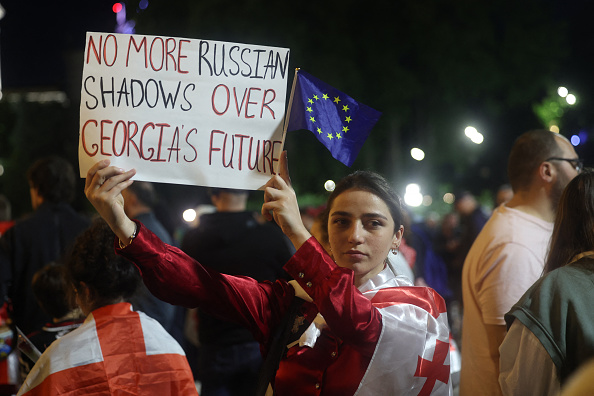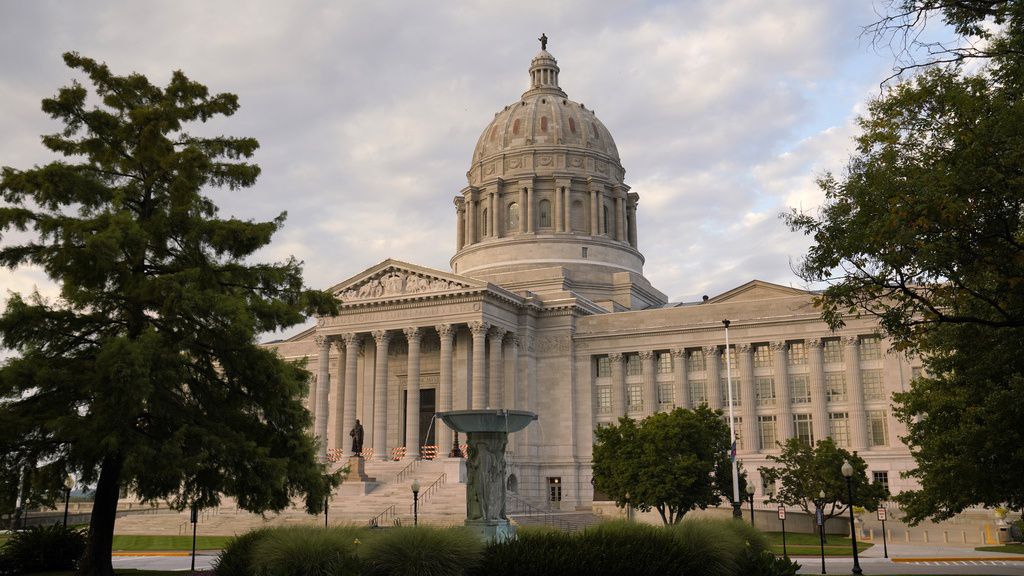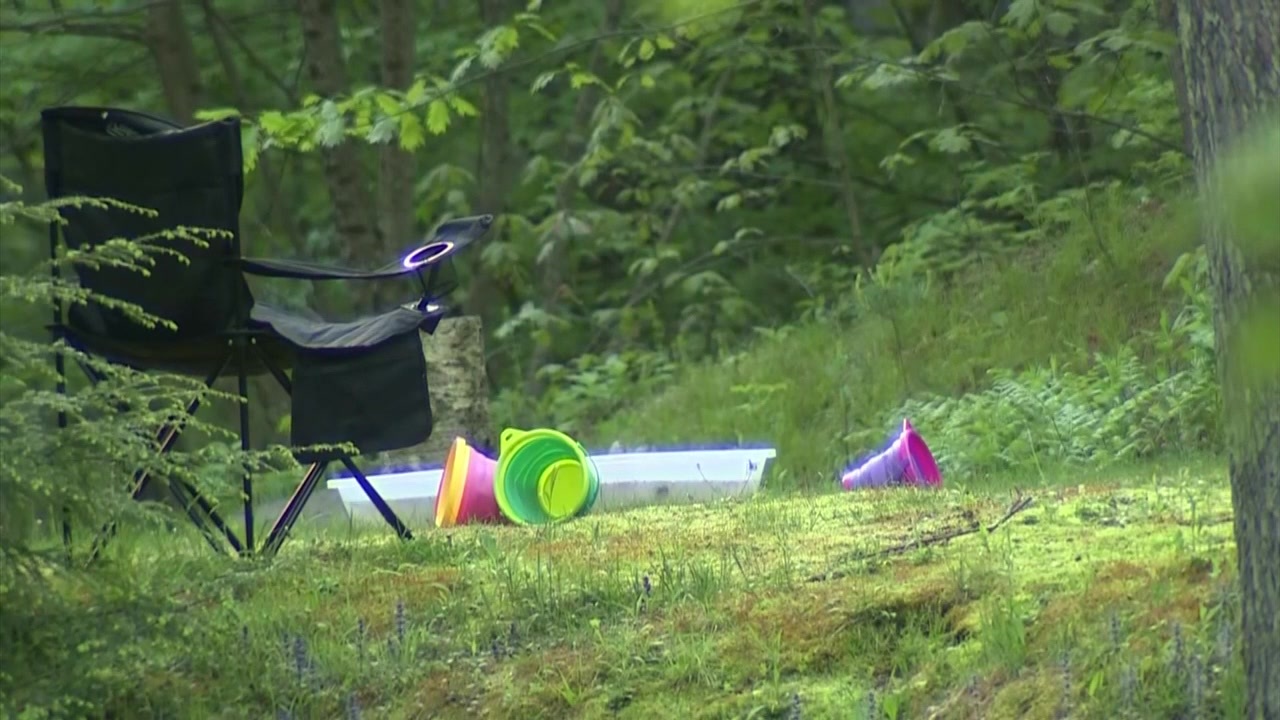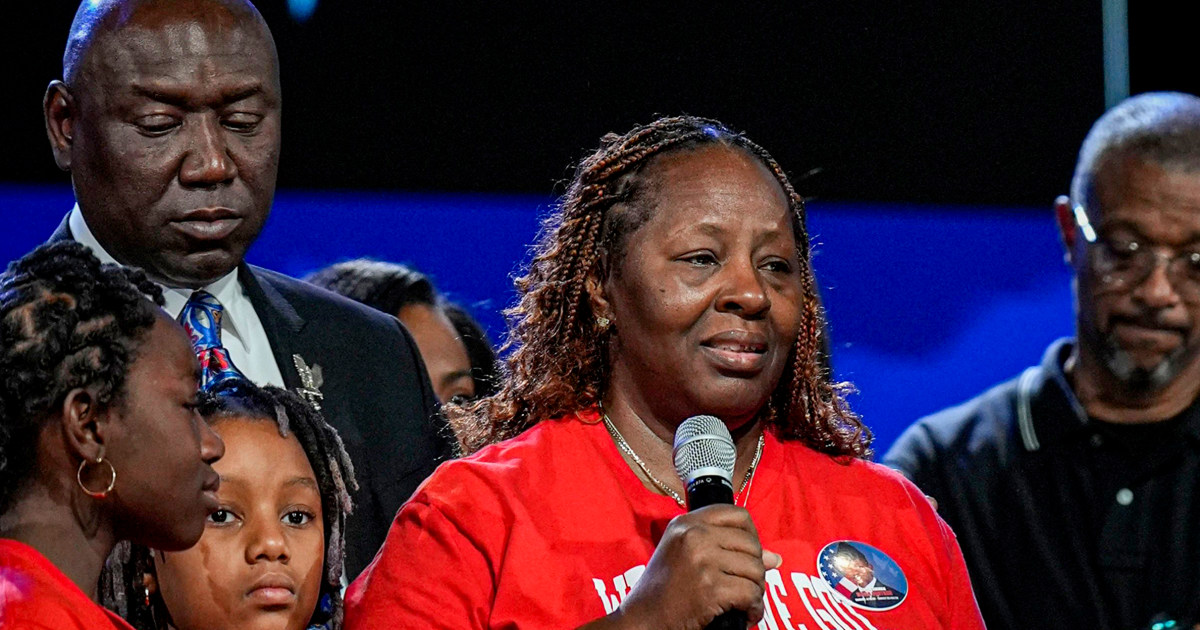South
Why Did Sidney Powell Plead Guilty?
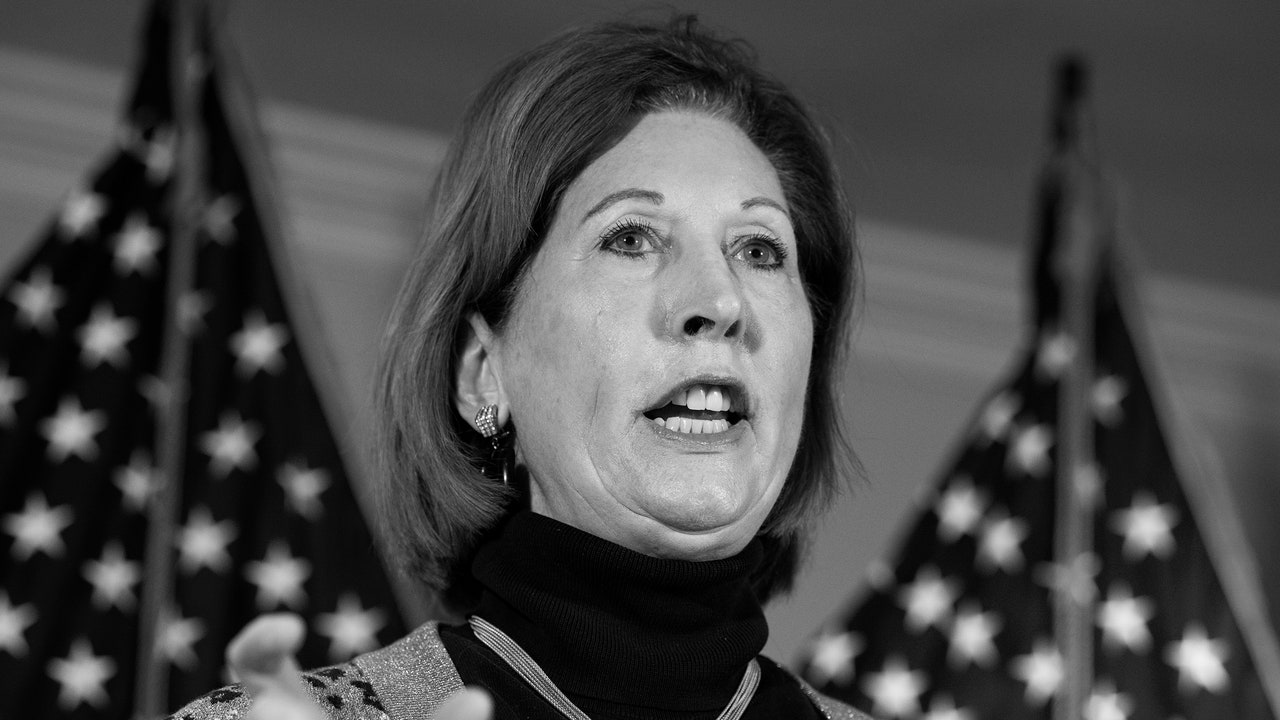
A few years ago, Sidney Powell, a former federal prosecutor and the author of the book “Licensed to Lie: Exposing Corruption in the Department of Justice,” was probably best known as a critic of the Mueller probe into Russia’s meddling in the 2016 Presidential election. After Michael Flynn, Trump’s former national-security adviser, pleaded guilty to the felony of lying to the F.B.I. in the course of that investigation, she publicly urged him to retract the plea; Flynn fired his lawyers and hired her instead. Donald Trump praised the decision. “General Michael Flynn, the 33 year war hero who has served with distinction, has not retained a good lawyer, he has retained a GREAT LAWYER,” he wrote on Twitter, wishing them both luck. Ultimately, however, Powell’s legal prowess was not required: Trump pardoned Flynn in November, 2020, rendering the case moot.
By then, Powell, along with Trump, Flynn, and others, had a new cause: proving that the 2020 Presidential election had been stolen. Powell appeared on Fox News and insisted that the Dominion Voting Systems elections software, used in more than half the country, had been manipulated. “They were flipping votes in the computer system, or adding votes that did not exist,” she said. She repeated the claim later that November, during an infamous press conference at the Republican National Committee headquarters, in Washington, D.C. Rudy Giuliani and Jenna Ellis, another Trump attorney, stood behind Powell as she claimed that Dominion’s software “can set and run an algorithm that probably ran all over the country to take a certain percentage of votes from President Trump and flip them to President Biden.” She added, “Why it was ever allowed into this country is beyond my comprehension, and why nobody has dealt with it is appalling.”
In rural Coffee County, Georgia, three and a half hours southeast of Atlanta, at least a few employees of the election office agreed. After a recount of Georgia’s votes was completed, on December 4th, the county’s elections supervisor, Misty Hampton, refused to certify the results, saying that the machines were unreliable. Days later, a local news outlet posted a video on YouTube in which Hampton is seen demonstrating how the machines could supposedly be used to flip votes. The video presented a potential source of evidence for Powell and others advancing claims of a Dominion conspiracy. But they would need to access the county’s voting software to find any smoking guns.
On January 7, 2021, the day after a right-wing mob stormed the Capitol building, several people paid a visit to the Coffee County elections office. A year and a half later, the Georgia Bureau of Investigation began formally looking into allegations that “computer trespass” had taken place that day. The delay seems to have been due to resistance from the Georgia secretary of state’s office, which, for months, denied that a breach had occurred. “There’s no evidence of that—it didn’t happen,” Gabriel Sterling, a top official with the office, said, in April, 2022. (When asked about the delay by The New Yorker, a spokesperson for the office said, “We took decisive action to address it and give voters peace of mind once we had solid evidence. Misty Hampton is no longer the elections director and all elections equipment has been replaced.”) As the secretary of state deflected, an elections-watchdog group, the Coalition for Good Governance, obtained discovery rights and began issuing subpoenas. The group’s computer-forensics expert confirmed that Coffee County’s elections server had been breached. The chair of Georgia’s state-elections board at the time, a former federal judge named William Duffey, pushed, more than once, for the F.B.I. to get involved. But the agency punted, deferring to the G.B.I., despite the smaller agency’s modest resources and inability to cross state lines.
A year after the G.B.I. investigation began, Powell and eighteen others, including Donald Trump, were indicted elsewhere in Georgia, in Fulton County, as co-conspirators under the Georgia Racketeer Influenced and Corrupt Organizations Act (RICO). Fulton County’s prosecutor, Fani Willis, aims to prove that there was collusion to overturn the outcome of the 2020 election. Powell, who was charged with seven felonies and was facing up to twenty years in jail and six-figure fines, demanded a swift trial, which would have allowed her to get ahead of evidence likely to come out later, when others are tried. But, on Thursday, in a surprise move, she pleaded guilty to six misdemeanor counts of intentional election interference. She will have to pay nearly nine thousand dollars in fines, be on probation for six years, and testify on behalf of the prosecution if called upon; she also has to write a letter of apology to the people of Georgia. Her plea stems from her apparent culpability in the theft and dissemination of voting-machine software, election data, and ballots in Coffee County.
The New Yorker recently obtained a copy of a nearly four-hundred-page summary report produced by the G.B.I., detailing the Coffee County scheme, which has not been made public. The report, much of it relying on information gathered by the Coalition for Good Governance, offers a fuller picture of both the breach at the election office and how that breach was connected to the larger effort to overturn the 2020 election. That effort centered on the work of Sidney Powell.
In mid-November, 2020, Powell travelled to Tomotley Plantation, in South Carolina’s Low Country, a sprawling property owned by the attorney Lin Wood. (Wood has since surrendered his Georgia law license.) Like Powell, Wood filed numerous lawsuits seeking to keep Trump in office after the 2020 election, including an emergency motion asking for access to voting machines in Georgia, which was denied. Powell served as Wood’s co-counsel in that case. In a hearing, she argued that “a two-year-old can hack these machines,” and claimed that she had “at least three teams of experts that could be dispatched to collect the information from the machines,” if the court would let them. An attorney representing the Georgia secretary of state’s office described this as an attempt to “get the proverbial keys to the software kingdom,” insisting that it was something “no federal court can possibly countenance.”
At Tomotley, Powell and Wood were joined by Doug Logan, the C.E.O. of an election-auditing company called Cyber Ninjas, which is now defunct. Also present were Michael Flynn and Jim Penrose, a former analyst at the National Security Agency. Along with Wood, Logan, Flynn, and Penrose—none of whom responded to requests for comment—are among thirty unindicted co-conspirators in Willis’s case. Wood’s guests took over a living room and a sunroom, where they erected a whiteboard and set up computers. Flynn stuck around through Thanksgiving; Logan stayed through Christmas. The G.B.I.’s report describes Tomotley as “the central hub for the voter fraud information processing.” Wood was tweeting a lot from Tomotley during this time. “I have worked closely with @SidneyPowell & others over recent weeks,” he wrote, on November 24, 2020. “The lawsuit Sidney will be filing tomorrow in GA speaks TRUTH.” One by one, all of his and Powell’s suits were deemed meritless. But they did buy time and keep the stolen-election conspiracy alive among Trump’s base while the Tomotley brain trust pursued other paths.
Soon after the Tomotley gatherings began, Powell hired a data-services firm called SullivanStrickler. The firm has insisted that it is “politically agnostic,” and it has not been charged with any wrongdoing, but at least one of its top employees was an outspoken election denier. Days after the election, Greg Freemyer, the firm’s head of research and development, answered a question on the Web site Quora: “Why is the 2020 U.S. vote tabulation process taking multiple days?” His response began, “Quality fraud takes time.” (Freemyer did not respond to a request for comment.) At Powell’s behest, SullivanStrickler initially went to Clark County, Nevada, after the judge in a case brought by another lawyer for Trump issued a limited order that allowed access to testing equipment and programs. (In the end, the judge allowed them to look at only equipment-testing reports generated before the election.) The firm then turned to Antrim County, Michigan, where a judge had ruled that the Trump legal team could make forensic images of vote-counting tabulators. The judge explicitly barred the “use, distribution or manipulation of the forensic images” without a further court order. Nonetheless, on December 6, 2020, SullivanStrickler’s chief operations officer, Paul Maggio, e-mailed Powell and Penrose to say that the Antrim files would be available for download once the company was paid. (The lawyer who brought the Michigan case, Matthew DePerno, was indicted this summer and charged with undue possession of a voting machine, willfully damaging a voting machine, and conspiracy—for his participation in a scheme where voting machines were taken from election offices, brought to motels and rental apartments, and disassembled, in an effort to uncover fraud. He has pleaded not guilty.)
A month later, Penrose asked Powell to pay for SullivanStrickler to go to Coffee County to make copies of voting-machine software and election data. A retainer agreement sent by SullivanStrickler, covering one day of work in Coffee County by four employees, said that the firm was owed twenty-six thousand dollars; Powell paid the firm through her nonprofit legal-advocacy group, Defending the Republic. According to testimony in the G.B.I. report, SullivanStrickler’s work in Coffee County was managed by Maggio and Powell. The document also reveals that SullivanStrickler “did not do any type of independent due diligence to ensure the legality of their work,” because, according to a company executive, “the majority of SullivanStrickler’s customers were lawyers, who are officers of the court and as such, the affirmation in the agreement indicating the proper authority for the proposed work was suitable.” In other words, it was the responsibility of the client—Sidney Powell—to insure that the work was legal.
On December 30th, Rudy Giuliani and Cathy Latham, the chair of the Coffee County G.O.P., testified before the Georgia legislature about alleged problems with Dominion machines. Both were represented at that hearing by an Atlanta lawyer who, the following day, sent an open-records request to Misty Hampton asking for all of Coffee’s absentee ballots. Hampton’s response set in motion SullivanStrickler’s arrival in the county to copy the election software and data. “Per the Ga law I do not see any problem assisting you with anything yall need accordance to Ga. law,” she wrote, on December 31st. “Yall are welcome in our office anytime.” (Hampton, Giuliani, and Latham have all been indicted in the RICO case and have pleaded not guilty.)

North Carolina
North Carolina Legislators Want To Ban Masks, Even For Health Reasons

Simone Hetherington, a speaker during public comment, urges lawmakers not to pass the masking bill … [+]
The North Carolina State Senate has voted along party lines this week to ban wearing masks in public.
Seventy years ago some states passed anti-mask laws as a response to the Ku Klux Klan, whose members often hid their identities dressed in robes and hoods.
The North Carolina bill repeals an exception to the old anti-mask laws that was enacted during the early phase of the Covid-19 pandemic, which allows people to wear masks in public for “health and safety reasons.”
According to The Hill, Republican supporters of the ban said it would help law enforcement “crack down on pro-Palestine protesters who wear masks.” They accuse demonstrators of “abusing Covid-19 pandemic-era practices to hide their identities.”
To reinforce the deterrent, the proposed law states that if a person is arrested for protesting while masked, authorities would elevate the classification of the misdemeanor or felony by one level.
Democrats in North Carolina have raised concerns about the bill, particularly for the immunocompromised or those who may want to continue to wear masks during cancer treatments. And others have also chimed in, including Jerome Adams, former Surgeon General in the Trump Administration, who posted on Twitter that “it’s disturbing to think immunocompromised and cancer patients could be deemed criminals for following medical advice aimed at safeguarding their health.”
Additionally, there are folks who may have legitimate health reasons for wearing medical masks, including asthma sufferers, people exposed to wildfire and smoke or individuals who want to protect themselves, their families and others from pathogens like Covid-19 and influenza.
Indeed, for decades people across Asia have worn masks for a variety of reasons, as USA Today explained at the outset of the coronavirus epidemic. Japanese often wear masks when sick to curb transmission. Philippine motorcycle riders will put on face coverings to protect from exhaust fumes in heavy traffic. Similarly, citizens of Taiwan use masks to protect themselves from air pollution and airborne germs.
There are exemptions incorporated into the proposed ban, including for Halloween or specific types of work that require face coverings. There’s even an exception that specifically allows members of a “secret society or organization to wear masks or hoods in a parade or demonstration if they obtain a permit,” as WRAL in Raleigh, North Carolina reports.
Upon reading this, a Democratic State Senator in North Carolina, Sydney Batch, asked, “so this bill will protect the Ku Klux Klan to wear masks in public, but someone who’s immunocompromised like myself cannot wear a mask?”
It’s noteworthy that if a group like the KKK were to file for and obtain a permit to demonstrate, under the proposed law they could wear face coverings. And this isn’t a theoretical point. The KKK has a history of organizing rallies in North Carolina, like one they held in 2019. The question is, could pro-Palestinian demonstrators get a similar permit now and be allowed to wear masks or other face coverings? Presumably not.
The American Civil Liberties Union argues that the law is specifically being used to target those who wear face coverings while protesting the war in Gaza, which in the ACLU’s view amounts to “selective prosecution of a disfavored movement.”
There are other legal aspects that could also be invoked that pertain to the constitutionality of such a ban.
Remember when at the height of the Covid-19 pandemic wearing a mask was mandatory in public places in many jurisdictions as well as federal buildings and property and this provoked an outcry from people on the grounds of freedom of choice? Judges overturned certain mask mandates at both the federal and state levels and did so on constitutional grounds. By the same token, though in a kind of role reversal, it could now be argued that by banning masks people won’t be able to exercise their freedom of choice to protect themselves. It stands to reason that a constitutional law debate could ensue if the North Carolina ban goes into effect.
In the meantime, the bill now moves to the House for the next vote. From there it may head to Governor Roy Cooper’s desk. He’s a Democrat and will likely veto the legislation. But the North Carolina Republican Party has a supermajority and can override a possible veto.
Oklahoma
Oklahoma bill would excuse students from school to take religious courses

TULSA, Okla. — The battle over religion and schools in the Sooner state is taking a new form, as students may be excused from classes to attend religious courses.
A bill making its way through the state capital that would clarify an already existing law.
State Representative Clay Staires (R-Skiatook) wroteHouse Bill 1425. Tulsa parent Meegan Clark supports it.
“I think we absolutely need to get God back into school and be giving teaching opportunities for religion,” said Clark.
She was eating lunch with her daughter. She said she believes this bill is no different than the other school activities.
“I don’t feel like it’s any different than having satanic clubs for after-school programs or dungeons and dragons or anything that omits Jesus or religion of any kind from them. So I feel it’s equal,” said Clark.
2 News went in-depth to see what the bill entails and what it means for schools.
The bill will allow schools to excuse students for a maximum of three class periods a week to attend a religious course.
“Right now, it is legal for it to happen in Oklahoma. But nobody knows how to do it, and so you can do it, and you can do it wrong, and next thing you know, you’re up for lawsuits and stuff like that,” said Staires
Staires said the school’s leadership will determine the instruction. The schools can decide how frequently and when students will be allowed off campus.
The bill said no taxpayer dollars would be used for funding. Staires said the organization would need to provide the transportation to avoid school funding.
Staires said schools can offer the courses to all age groups. However, students are required to have their parent’s permission before attending the classes.
“The vast majority of states that are doing this is happening with young kids, and that’s why there needs to be a bus that transports them from place to place because you know they’re not driving themselves,” said Clark.
The bill specifically states that all denominations are welcome to teach students.
Representative Staires said the bill was approved in the Oklahoma House of Representatives and sent to the State Senate. The bill was then amended and approved by the Senate.
Before going to the governor’s desk, the amended version goes back to the House for final approval.
Representative Staires said all religious organizations will be vetted before beginning the courses.
Stay in touch with us anytime, anywhere —
South-Carolina
Baseball Drops Thursday Decision at Tennessee

KNOXVILLE – Tennessee used four home runs in a 9-3 win over the University of South Carolina baseball team Thursday night (May 16) in the first of a three-game series against the Volunteers at Lindsey Nelson Stadium.
Ethan Petry opened the scoring with his 20th home run of the season, a solo shot to left in the first inning. Tennessee answered with Christian Moore’s 25th home run, tying the game at one after one inning of play. Tennessee scored four runs the third on home runs from Moore and Kavares Tears.
The Volunteers went up 6-1 in the fourth on Blake Burke’s RBI double, but Cole Messina got that run back in the sixth with a solo home run over the batter’s eye in center.
Tennessee scored three runs in the seventh, highlighted by a Dylan Dreiling two-run home run. Dalton Reeves brought in the game’s final run in the eighth on a single up the middle.
Ty Good took the loss, allowing five hits and six runs with four strikeouts in four innings. Tyler Pitzer had four strikeouts in three innings. Petry, Messina and Reeves had two hits apiece with Messina scoring two runs.
POSTGAME NOTES
- Petry now has 43 career home runs, tied for sixth in Carolina history.
- Petry has a 12-game hit streak after the home run in the first.
- Good now has 341 career strikeouts between Carolina and the College of Charleston.
UP NEXT
Carolina and Tennessee continue the three-game set on Friday night (May 17) at 6:30 p.m., at Lindsey Nelson Stadium. The game will be stream
-

 Politics1 week ago
Politics1 week agoBiden takes role as bystander on border and campus protests, surrenders the bully pulpit
-

 Politics1 week ago
Politics1 week ago'You need to stop': Gov. Noem lashes out during heated interview over book anecdote about killing dog
-

 Politics1 week ago
Politics1 week agoRFK Jr said a worm ate part of his brain and died in his head
-

 News1 week ago
News1 week agoMan, 75, confesses to killing wife in hospital because he couldn’t afford her care, court documents say
-

 World1 week ago
World1 week agoPentagon chief confirms US pause on weapons shipment to Israel
-

 Politics1 week ago
Politics1 week agoHere's what GOP rebels want from Johnson amid threats to oust him from speakership
-

 World1 week ago
World1 week agoPro-Palestine protests: How some universities reached deals with students
-

 World1 week ago
World1 week agoConvicted MEP's expense claims must be published: EU court


